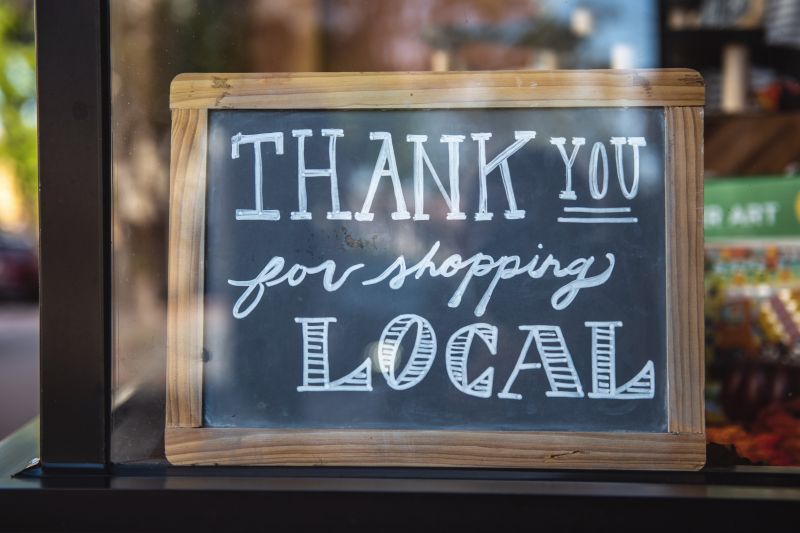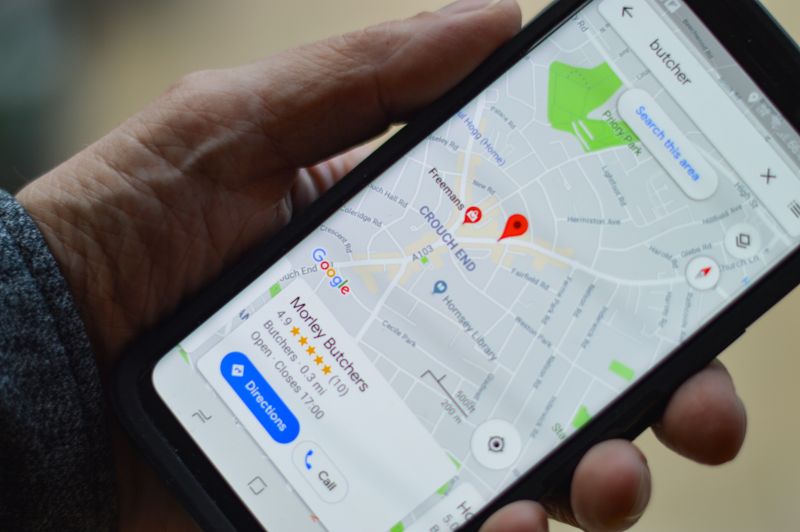
Local SEO Is Effective, Efficient Marketing for a Small Business
As a small business, your time and money is limited. It’s important to get as much value as you can from any marketing efforts you invest in. A balanced approach is key to ensuring your brand has a complete marketing bridge, and if you overlook any critical components of that bridge you’re likely hurting your online presence. For a small business with a physical address, local SEO is a cost-effective marketing avenue that can’t be ignored.
Local SEO is a powerful tool in the marketing arsenal for small businesses. When done right, it can put your brand miles ahead of your competition and help you dominate your industry within your service area. At Armada Digital, we’ve seen some truly impressive growth as a result of local SEO efforts for our clients, even within highly competitive regions. We’re here to spread the good word!
What Is Local SEO for a Small Business?
Local SEO for a small business is the process of demonstrating to Google that your brand is a high-value, high-authority result within your area and industry.
When people search for products and services, Google will often take their location into account, displaying nearby results first. Local SEO, then, is a form of search engine optimization that specifically aims to make your business more visible in those searches targeting your geographical area.
Why Do Small Businesses Need Local SEO?
For small businesses, local SEO is critical for reaching the subset of your audience most likely to do business with your brand: people in your region, city, or even a specific neighborhood.
Increased visibility in local searches leads directly to more business. When someone includes a specific location or “near me” within their search, it demonstrates strong buyer intent and urgency. In fact, 80% of local searches on mobile devices result in a conversion or purchase. With more than 60% of all searches now done on mobile devices, this means local search represents a huge amount of potential for a small business.
How Do I Optimize My Small Business Site for Local SEO?
There’s a lot that goes into effective local search optimization. Here are some of the most important things you should be doing to boost your brand’s local visibility.
1. Get Listed Online
If your business has a brick and mortar location (or just a business address), Google needs to know what it is. For local results, Google only displays businesses with established addresses in or near the target area.
This means one of the most critical steps your small business must take for local SEO is to create local profiles, establish authority over existing ones, and ensure the accuracy of all your business listings online.
Making sure all your business information is correct on Google Maps (not just your address) and creating a Google My Business profile are two of the most important things you can do. Depending on your industry, other sites may have listings for your business, such as Yelp and the BBB.
The process for claiming local listings varies, but Moz has an excellent resource explaining how it works.
2. Get Reviews—and Respond to Them
Reviews are a huge factor in any purchasing decision. After all, when’s the last time you decided on a new restaurant to try without checking the reviews first?
When it comes to local SEO, reviews are especially important because they’re prominently displayed in local search results. The more (positive) reviews you can get, the stronger this will be in enticing your audience to visit your site.
Ask customers to leave a review wherever possible. You may even consider providing them with some sort of reward, particularly if your brand still has very few reviews overall.
Negative reviews are inevitable, of course. No business has a perfect record. In these cases, it helps to be honest and take public-facing steps to amend the issue. This demonstrates your commitment to doing right by your customers and shows others that even if you get it wrong, you’ll make it right!
In fact, being responsive is an excellent marketing practice overall, not just when it comes to local SEO. Whether it’s thanking a customer for a glowing review or responding to a comment on a social media post, engaging with your customers creates a sense of community around your brand and helps to build loyalty.
3. Focus Your Keyword Research & Selections
It’s important to narrow your keyword list to high-value terms, especially if you’re a locally based small business. For instance, if a person is looking for roofing services, they’re unlikely to just type “roofing” in a Google search—or more likely, they won’t get the results they’re looking for. Instead, they’ll narrow their search by using terms like “roofer near me” or “roofing in Columbus, OH”—wherever they may be.
Additionally, if someone searches for a general term like “roofing,” it’s possible that they aren’t even looking for roofing services. They may be looking for images of different roofing systems or just general information and tips on roofing. So while “roofing” is a high-volume search term, these types of keywords are usually too general to be worth focusing on.
This means it’s important to focus your keyword research and make qualified keyword selections based on the intent of the user. Specifically, look for terms related to your industry, your service offerings, and/or your products with your service area (or areas) appended. This will help you narrow down your research and identify high-value local terms that are more likely to convert for your brand to focus on.
4. Create Content That Corresponds to Local Search Terms
As it exists right now, your website probably doesn’t have enough pages to optimize for your entire keyword list. This means, as you identify important keywords related to service and services areas, you’ll need to start creating pages with content that speaks to these searches.
Location pages are strong when it comes to local SEO for a small business. You can make customized pages speaking to neighborhoods, cities, or counties that your business operates within. If your business has more than one location, making separate pages for each is an even stronger strategy.
5. Establish Your Industry Authority with a Blog
In addition to location-driven content, you’ll need a blog to cover other topics in your industry and establish your business as an authority. This can include product recommendations and reviews, tips related to the work you do, and blogs that answer questions commonly asked within your industry.
Maintaining a blog is critical when it comes to building a search presence. Google looks favorably on websites that are regularly updated with new content or revisions to outdated pages and posts. In addition, adding blog posts increases the likelihood that someone will link to your site—a major signal to Google that your website is worth displaying in results pages.
However, keeping up with blogging can be difficult, especially as a small business with limited time, money, and personnel. If you’re interested in driving more traffic to your website, it’s a smart move to outsource your ongoing digital marketing efforts to an expert agency like AE.
6. Make Things Visual
While not every business may seem geared toward visual content, the truth is it’s a vital part of establishing your legitimacy as a local brand no matter what you do. If your business comes up in local search results, the first thing many potential customers will check after reviews are any photos that may be listed in your profile.
When visitors click on your site or visit your social media platforms, they’ll also be interested in pictures of your work, your products, or your place of business. Adding visual elements to your small business’s local profiles and making it a point to share your work can go a long way toward turning visitors into leads and conversions.
Bonus: Follow Other SEO Best Practices
Of course, while local SEO is vital for small businesses, general SEO best practices still apply. That means working keywords into your content; setting things like SEO titles, meta descriptions, and image alt text; including images on pages; and much more.
And don’t forget the technical aspects of SEO, too, like monitoring your site for indexing issues and 404 errors! If important pages on your site aren’t being served by Google, or if they’re broken and won’t load, appearing in search results is the least of your worries.
Click here for our related post on The Importance of SEO (Search Engine Optimization)
Sound Like a Lot? Armada Digital Can Help!
Local SEO is critical if you want your small business to dominate search results in your area—but it’s just one piece of the puzzle. If you’re driving traffic to your website, you’ll want users to see a site that’s intuitively designed, branding that stands out, and content that’s compelling and engaging.
That’s what the marketing bridge is all about! At Armada Digital, we don’t peddle piecemeal marketing products and services that leave major gaps in your marketing strategy. Instead, we fully evaluate your brand and provide the services that will provide sustainable, long-term growth for your business.
If you’re interested in learning more, reach out to us to schedule your digital marketing exploratory.

